Slabbinck Fabrics for Vestments, Albs, Altar Cloths, Banners and Tapestries
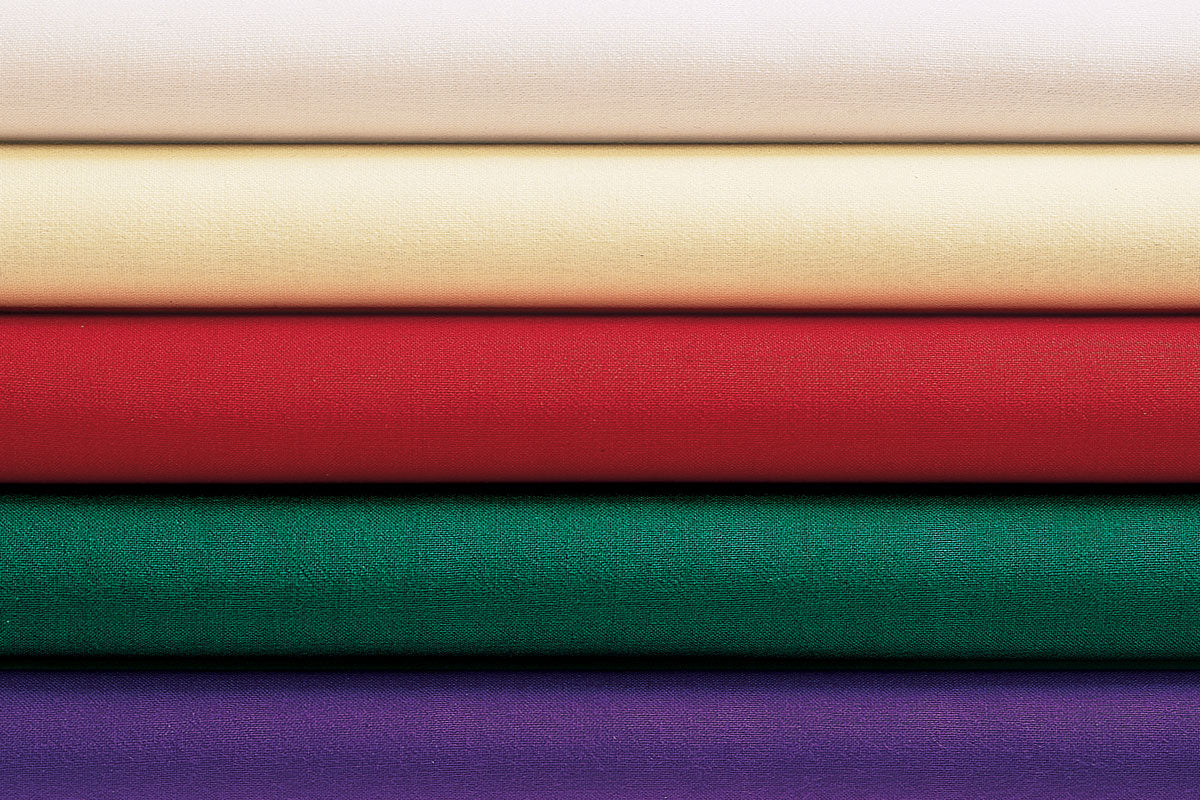
Brugia
Brugia fabric, made from 100% wool. A lightweight and elegant fabric, 100% natural.
Length: 150 cm/59". Weight: 180 g/m2.
Sheep's wool is the only natural insulating material that keeps you warm and protects you from heat, cold, and moisture. This fabric is perfect for liturgical garments (chasubles, dalmatics, stoles), and albs. Due to stricter care requirements, it is not recommended for altars and lecterns.
Read the washing and care instructions.
Learn MoreCantate
Cantate, a structured fabric with gold threads woven into the material, of 61% wool, 33% man-made fibres and 6% lurex.
Lenght : 150 cm/59". Weight : 220 g/m2.
Sheep's wool is the only naturally occurring insulating material that keeps you warm and protects you from heat, cold and moisture. The uniqueness of the raw fibre sheep's wool also makes it a material with unique advantages in its end product. This fabric is perfect for vestments (chasubles, dalmatics, stoles), altar- or lectern covers and tapestries due to the great look of the gold thread woven in the fabric and the average weight.
Please read washing and cleaning instructions.
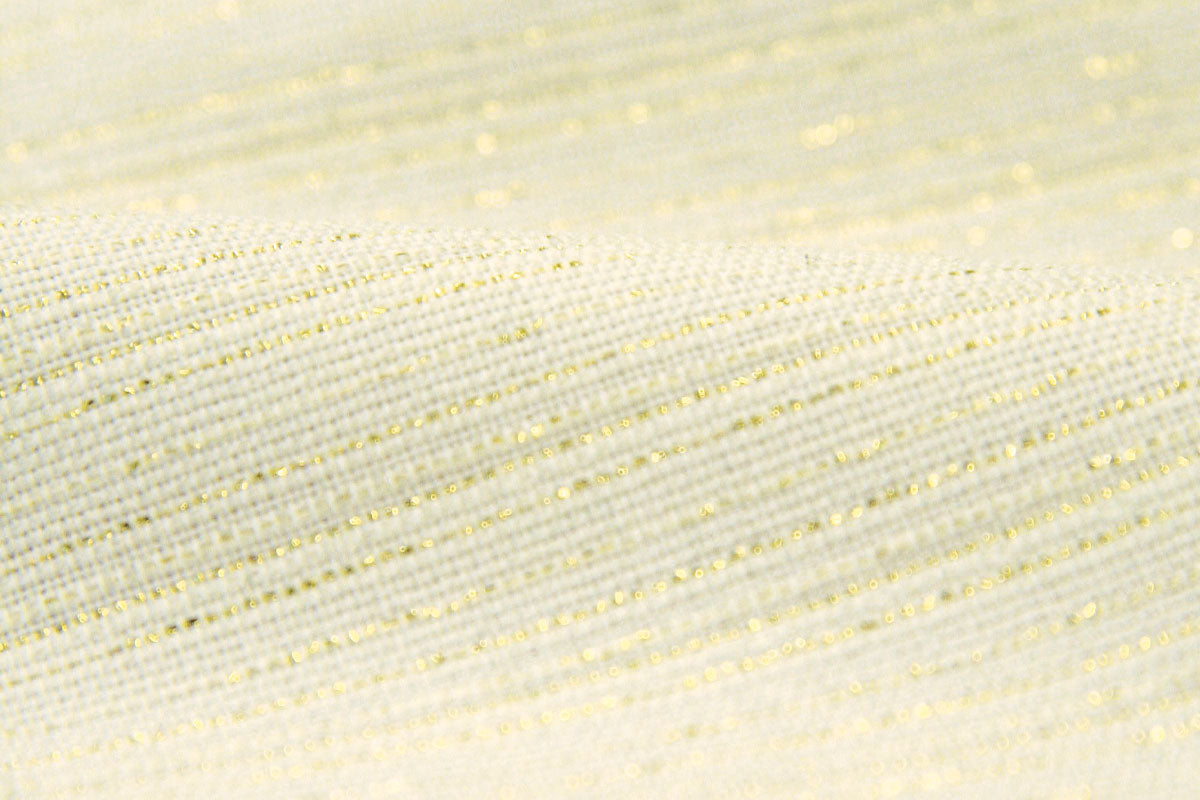
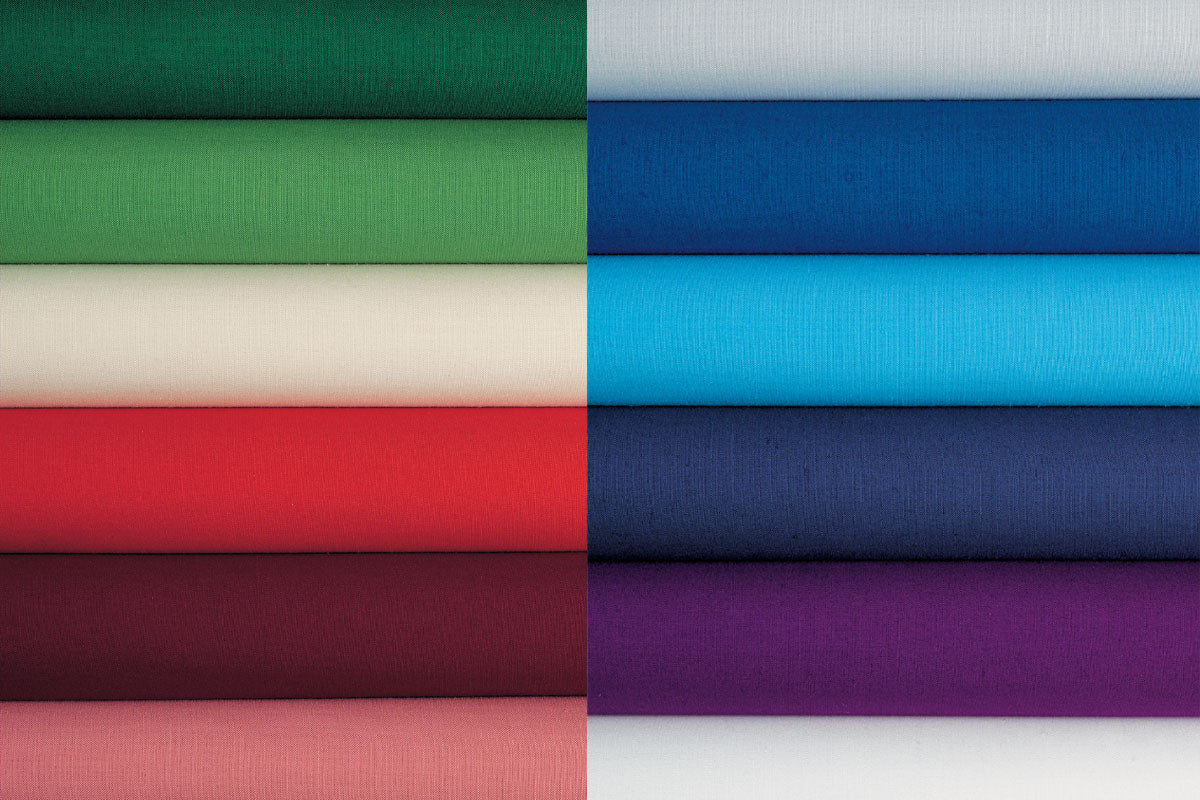
Dupion
Dupion. Knotted yarn fabric of 70% polyester and 30% viscose. Washable and lightweight.
Length : 150 cm/59". Weight : 200 g/m2.
Viscose is a type of textile made from the cellulose fibres that are contained in wood pulp; like beech, pine and eucalyptus but also bamboo. It has a silk-like appearance and the ability to absorb and retain rich and vibrant colours. Its cellulosic base gives it properties similar to those of cotton and smoothness similar to silk, meaning it’s moisture absorbent, breathable and comfortable to wear. Viscose is semi-synthetic due to the chemicals involved in the viscose process. Dupion is a blend of 70 man-made fibre and 30% viscose, guaranteeing the advantages of a man made fibre, but keeping the soft feel of viscose.
This fabric is perfect for vestments (chasubles, dalmatics, stoles), altar- or lectern covers and tapestries due to the easy maintenance.
Please read washing and cleaning instructions.
Duomo
Duomois a 100% man-made fibre damask fabric.
Length : 160 cm/ 63". Weight : 155 g/m2.
Damask fabric is named for Damascus, which is where this textile product originated. Known for its intricate and reversible patterns, damask fabric is prized for its ornateness. These days, however, it’s easy to make incredibly complex damask patterns with modern textile machines. Traditionally, damask fabric was made from silk, cotton, or wool, but synthetic damask weaves are now available also.
This fabric is perfect for vestments (chasubles, dalmatics, stoles), altar- or lectern covers and tapestries.
Please read washing and cleaning instructions.
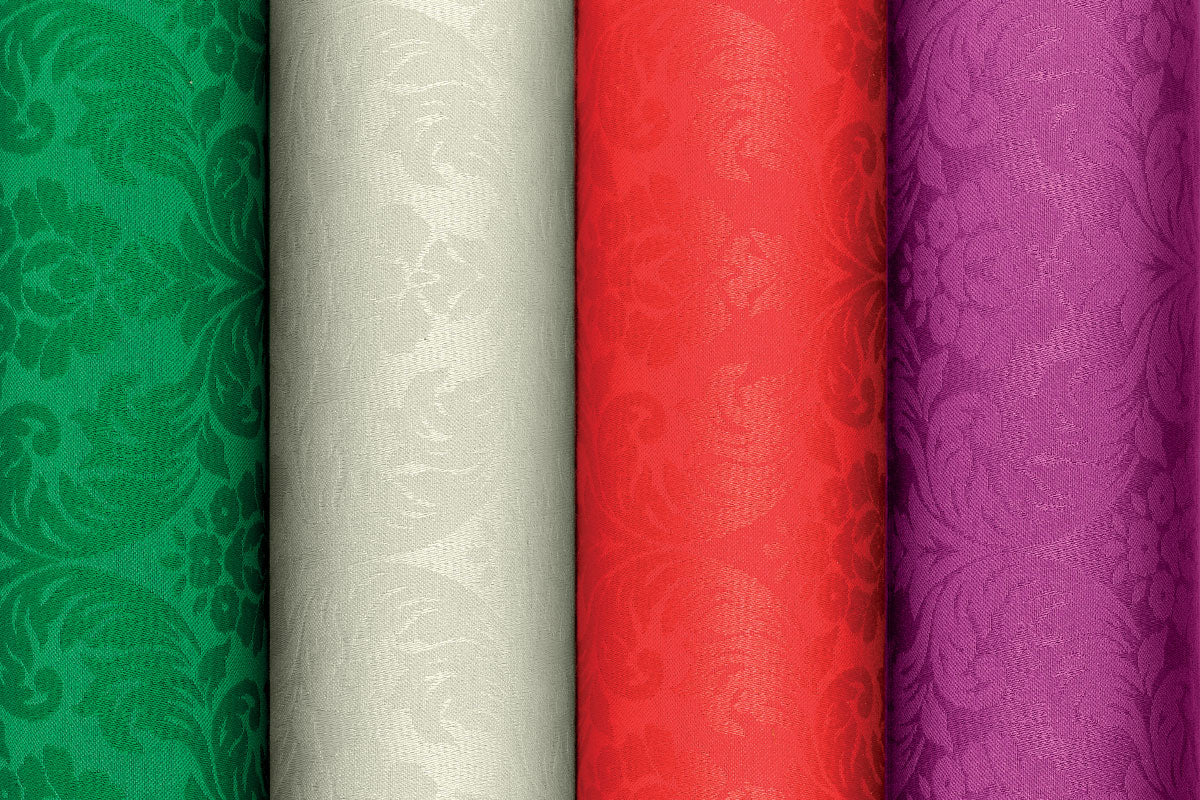
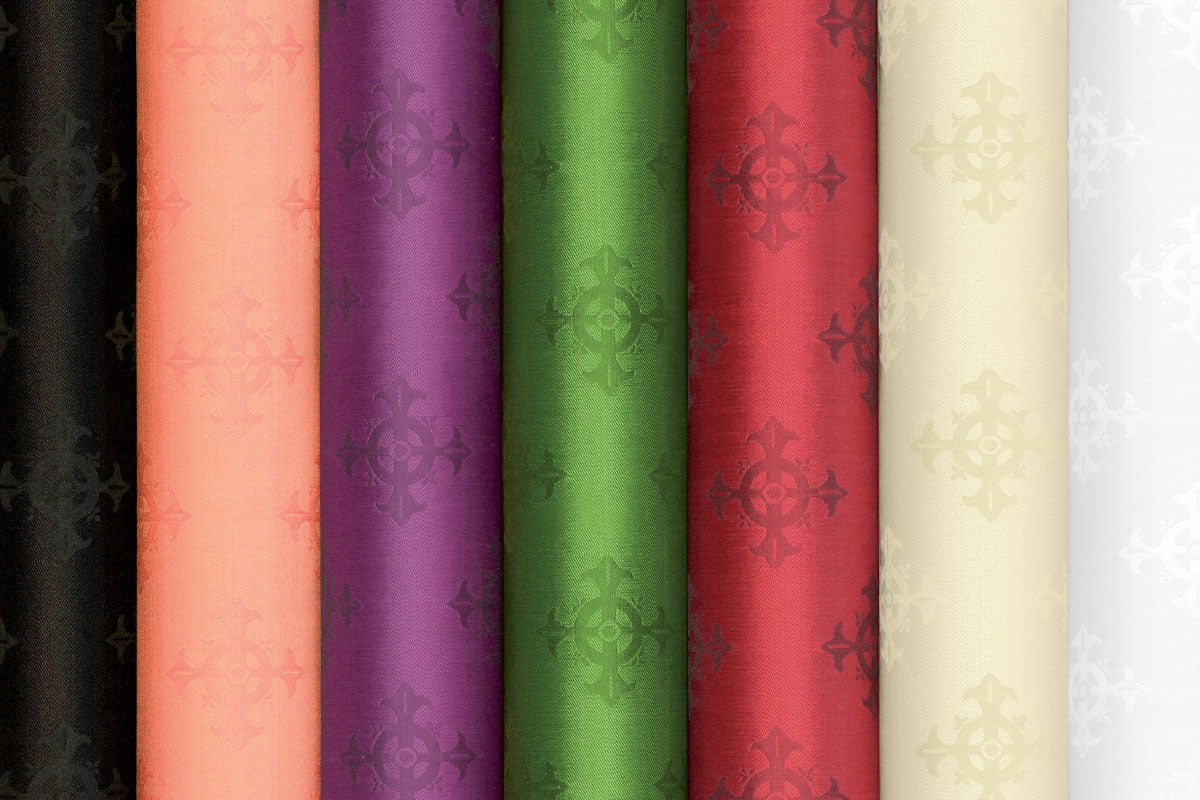
Adornes
Adornes, damask fabric of 100% man-made fibre.
Length : 150 cm/59". Weight : 145 g/m2.
Damask fabric is named for Damascus, which is where this textile product originated. Known for its intricate and reversible patterns, damask fabric is prized for its ornateness. These days, however, it’s easy to make incredibly complex damask patterns with modern textile machines. Traditionally, damask fabric was made from silk, cotton, or wool, but synthetic damask weaves are now available also.
This fabric is perfect for vestments (chasubles, dalmatics, stoles), altar- or lectern covers and tapestries due to the easy maintenance.
Please read washing and cleaning instructions.
Pius
Piusis a 100% man-made fibre.
Length : 160cm/63". Weight : 145 g/m2.
The advantages of man-made fibre are :
- Natural fibers are softer and more natural than their synthetic fiber counterparts but aren’t always as durable.
- Man made or regenerated fibers are often easier to care for than natural fibers without the need for special treatments such as dry cleaning.
- Synthetic fibers can be easily washed in hot water which you wouldn’t recommend with some animal or plant based fabrics. They can also offer better performance in terms of heat, making them great for areas of high humidity and wet climates.
Man-made fibers, such as polyester, offer a interesting alternative to natural fibers. Through the process of polymerization, these fibers are created by combining raw materials to form a versatile polymer. The resulting fibers provide a reliable and sustainable option for various applications and are a great choice for those seeking functional and practical textile solutions.
This lightweight fabric is perfect for chasuble, stoles and also for altar and lectern covers and other paraments due to the easy maintenance.
Please read washing and cleaning instructions.
Learn More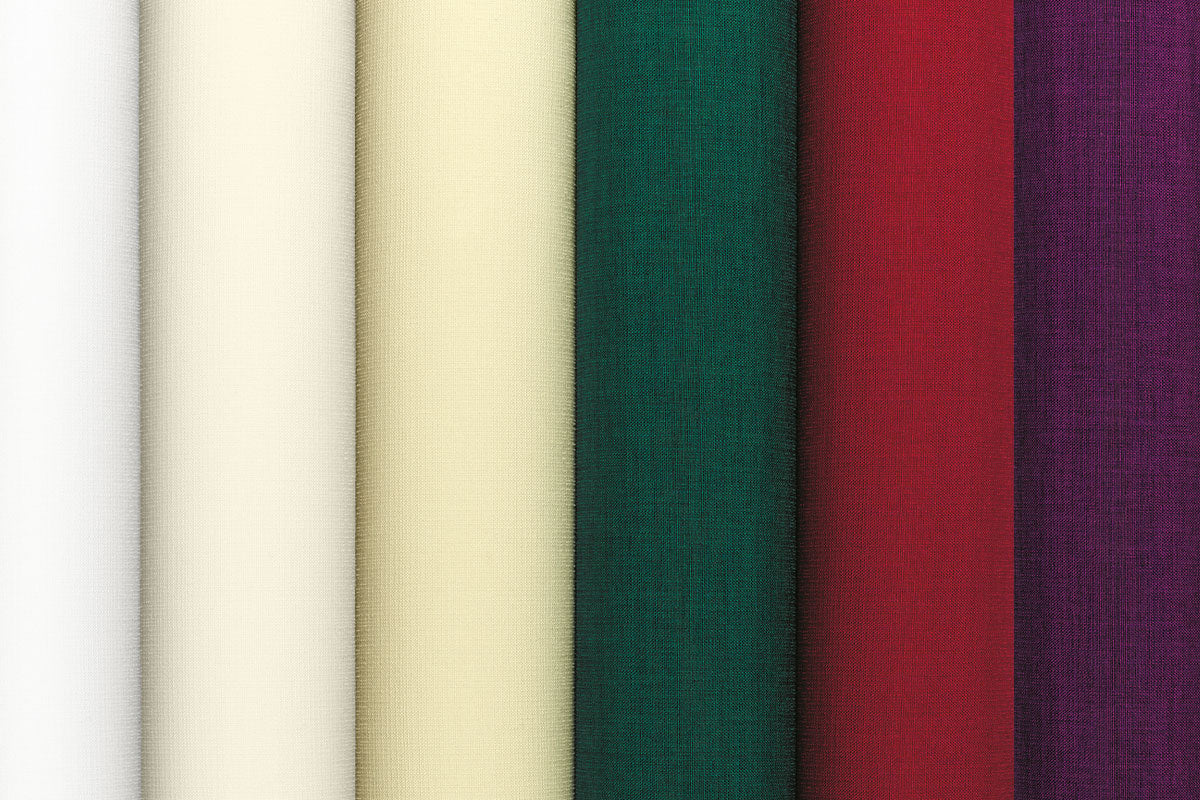
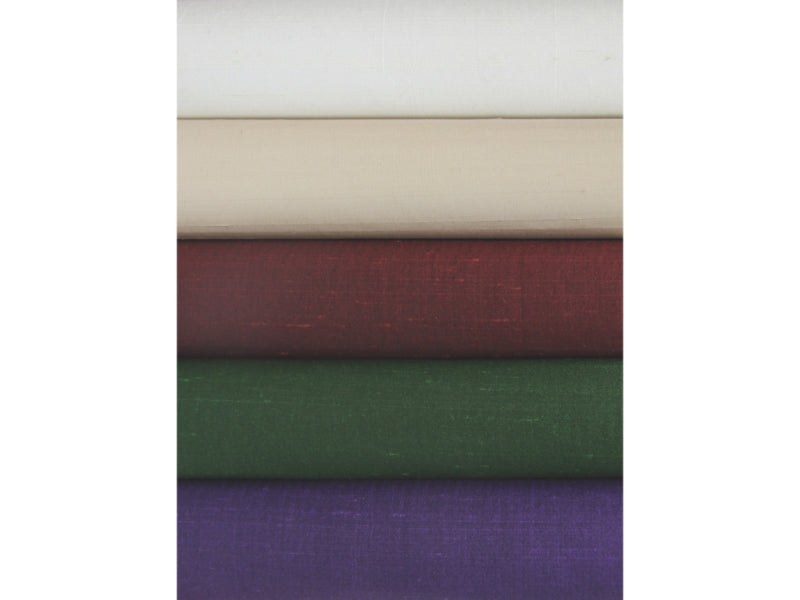
Sentia
Sentia, fabric of 55% silk and 45% man-made fibres.
Length : 155 cm/61". Weight : 110 g/m2.
The beautiful Sentia fabric offers all the benefits of silk (55%), but is enhanced by artificial silk (45%) so that the fabric is easier to maintain and reacts less intensely to heat and humidity fluctuations.
Silk is an incredibly wonderful, luxurious material that has a beautiful luster. Silk has a natural drape and takes colour very well. The feeling of silk on the skin is very light and soft. Silk is made from cocoon wires from a silk butterfly larva and consists of 100% natural material. Sentia is a blend of 55% man-made fibre and 45% silk, guaranteeing the advantages of a man made fibre, but keeping the soft feel and the great looks of silk.
This lightweight fabric is perfect for chaubles and stoles, not for altar-, lectern covers or tapestries.
Please read washing and cleaning instructions.
Learn MorePascal
Pascal, 69% man-made fibres, 30% viscose, 1% gold thread.
Length : 160 cm/63". Weight : 280 g/m2.
Viscose is a type of textile made from the cellulose fibres that are contained in wood pulp; like beech, pine and eucalyptus but also bamboo. It has a silk-like appearance and the ability to absorb and retain rich and vibrant colours. Its cellulosic base gives it properties similar to those of cotton and smoothness similar to silk, meaning it’s moisture absorbent, breathable and comfortable to wear. Viscose is semi-synthetic due to the chemicals involved in the viscose process. Pascal is a blend of 70 man-made fibre and 30% viscose, guaranteeing the advantages of a man made fibre, but keeping the soft feel of viscose.
Pascal is a heavier fabric, perfect for stole, tapestries, banners, altar- and lectern covers.
Please read washing and cleaning instructions.
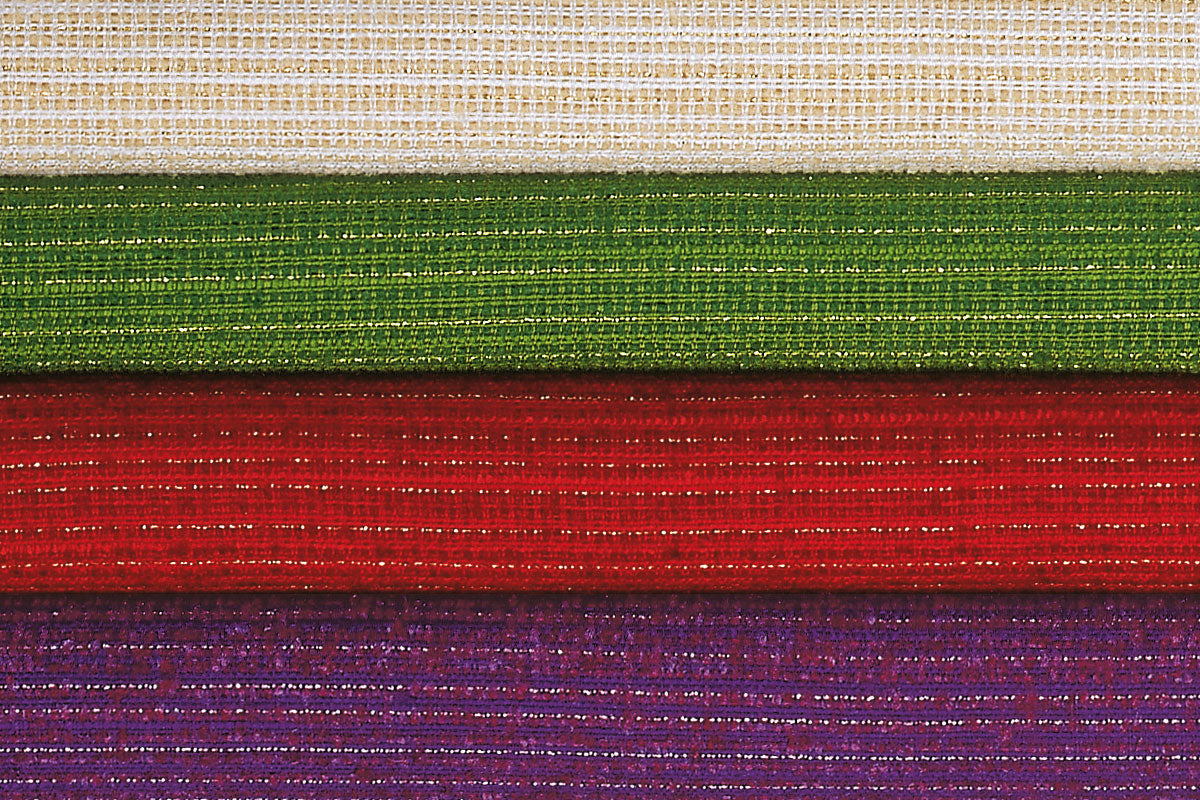
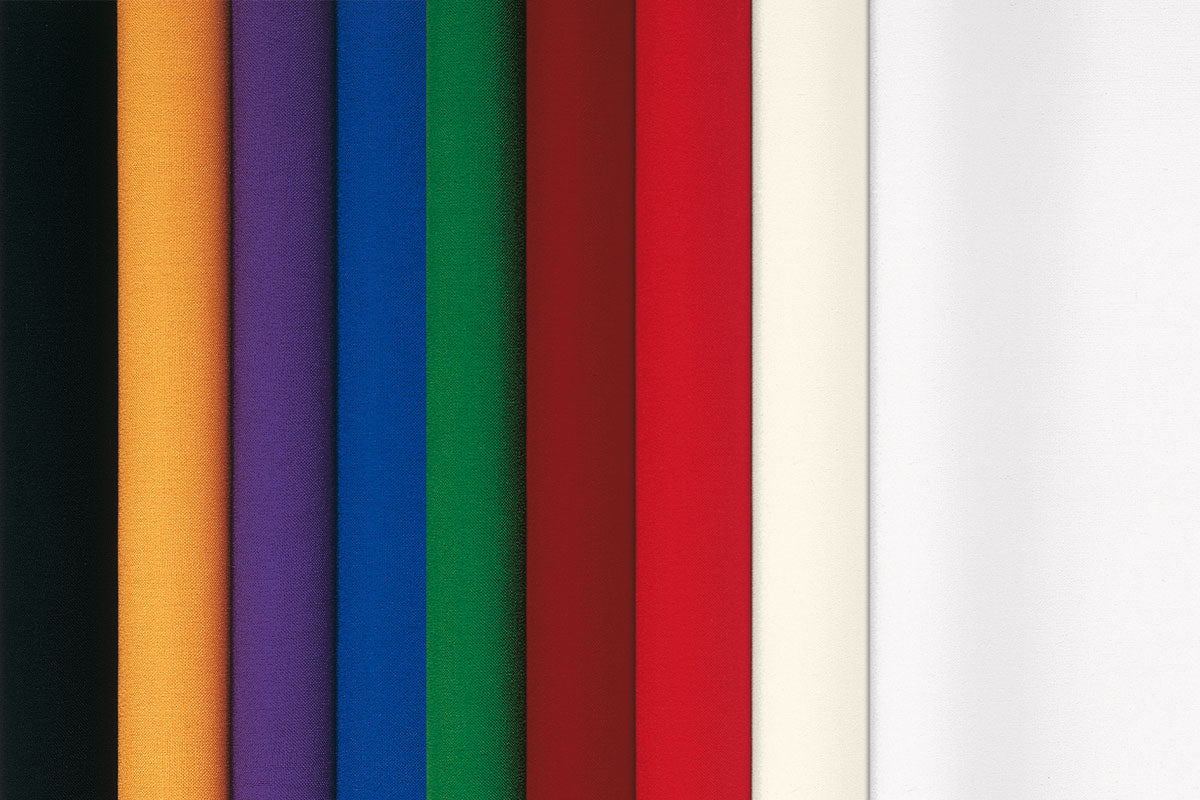
Terlenka
Terlenka,70% man-made fibres and 30% viscose.
Length : 150cm/59". Weigth : 175 g/m2.
Viscose is a type of textile made from the cellulose fibres that are contained in wood pulp; like beech, pine and eucalyptus but also bamboo. It has a silk-like appearance and the ability to absorb and retain rich and vibrant colours. Its cellulosic base gives it properties similar to those of cotton and smoothness similar to silk, meaning it’s moisture absorbent, breathable and comfortable to wear. Viscose is semi-synthetic due to the chemicals involved in the viscose process. Terlenka is a blend of 70 man-made fibre and 30% viscose, guaranteeing the advantages of a man made fibre, but keeping the soft feel of viscose.
This fabric is perfect for vestments (chasubles, dalmatics, stoles, albs) and altar- or lectern covers due to the easy maintenance.
Please read washing and cleaning instructions.
Vaticano
Vaticano, opaque fabric of 70% polyester and 30% viscose.
Length : 150 cm/59". Weigth : 265 g/m2.
Viscose is a type of textile made from the cellulose fibres that are contained in wood pulp; like beech, pine and eucalyptus but also bamboo. It has a silk-like appearance and the ability to absorb and retain rich and vibrant colours. Its cellulosic base gives it properties similar to those of cotton and smoothness similar to silk, meaning it’s moisture absorbent, breathable and comfortable to wear. Viscose is semi-synthetic due to the chemicals involved in the viscose process. Vaticano is a blend of 70 man-made fibre and 30% viscose, guaranteeing the advantages of a man made fibre, but keeping the soft feel of viscose.
This fabric is perfect for albs due to the easy maintenance.
Please read washing and cleaning instructions.
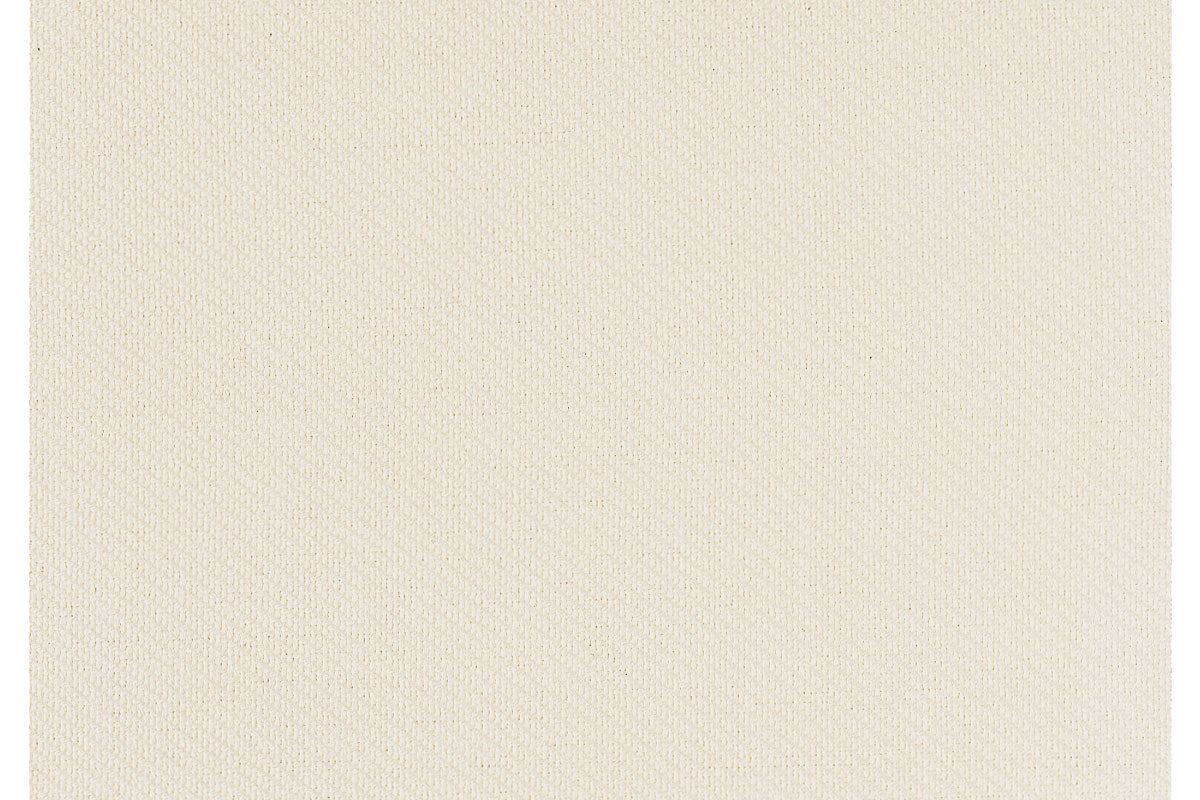
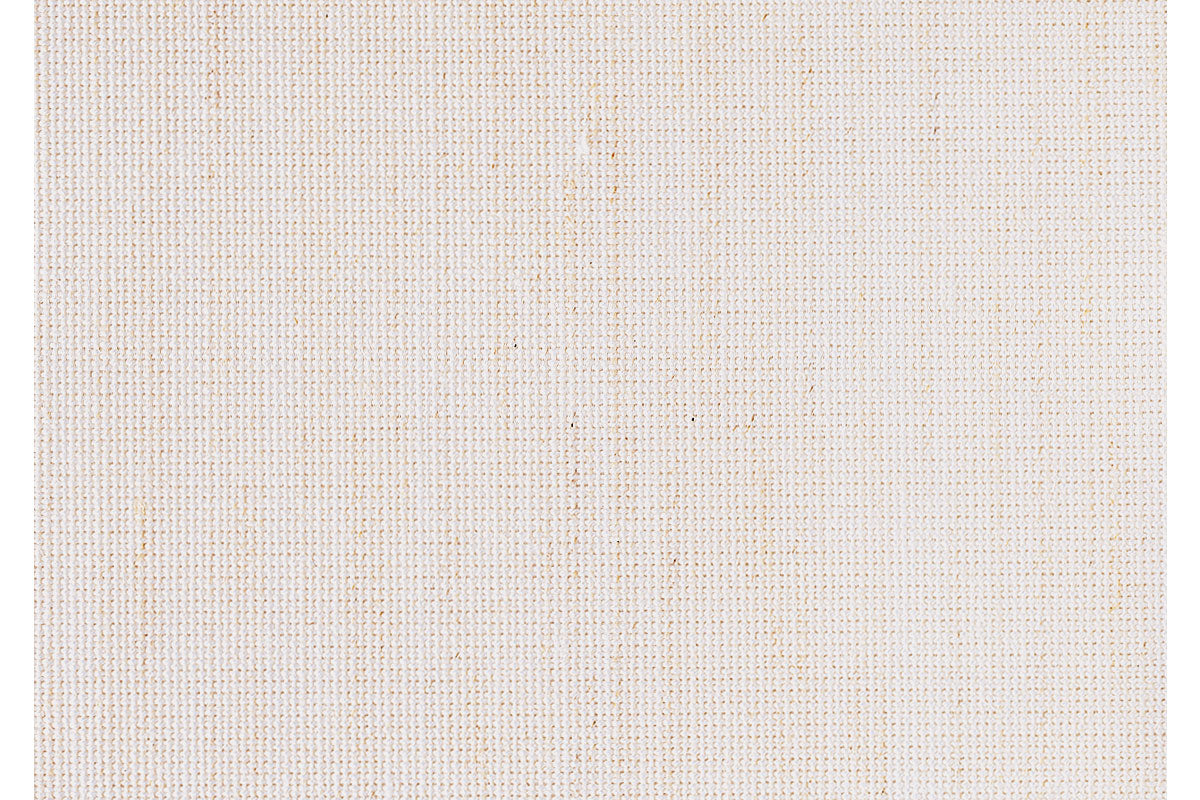
Leo
Leo,90% man-made fibres and 10% linen.
Lenght : 150 cm/59". Weight : 205 g/m2.
Linen is a natural fiber, like cotton, but it takes longer to harvest and make into fabric, as flax fibers can be difficult to weave. The fibers are extracted from the plant and stored for long periods of time to soften the fibers. Flax is very breathable, flax linen fibers are hollow so air and water can easily circulate.
Leo is a blend of 90% man-made fibre and 10% linen, guaranteeing the advantages of a man made fibre, but keeping the look of linen in the fabric.
- Man-made fibre is stronger and does not shrink.
- Man-made fibre is more moisture-wicking while linen is more absorbent.
- Man-made fibre dries faster and does not wrinkle as easily as linen.
This fabric is perfect for albs.
Please read washing and cleaning instructions.
Prisma
Prisma, made of 45% wool and 55% man made fibre.
Length : 150 cm/59". Weight : 250 g/m2.
Sheep's wool is the only naturally occurring insulating material that keeps you warm and protects you from heat, cold and moisture. The uniqueness of the raw fibre sheep's wool also makes it a material with unique advantages in its end product.
This fabric is perfect for albs.
Please read washing and cleaning instructions.
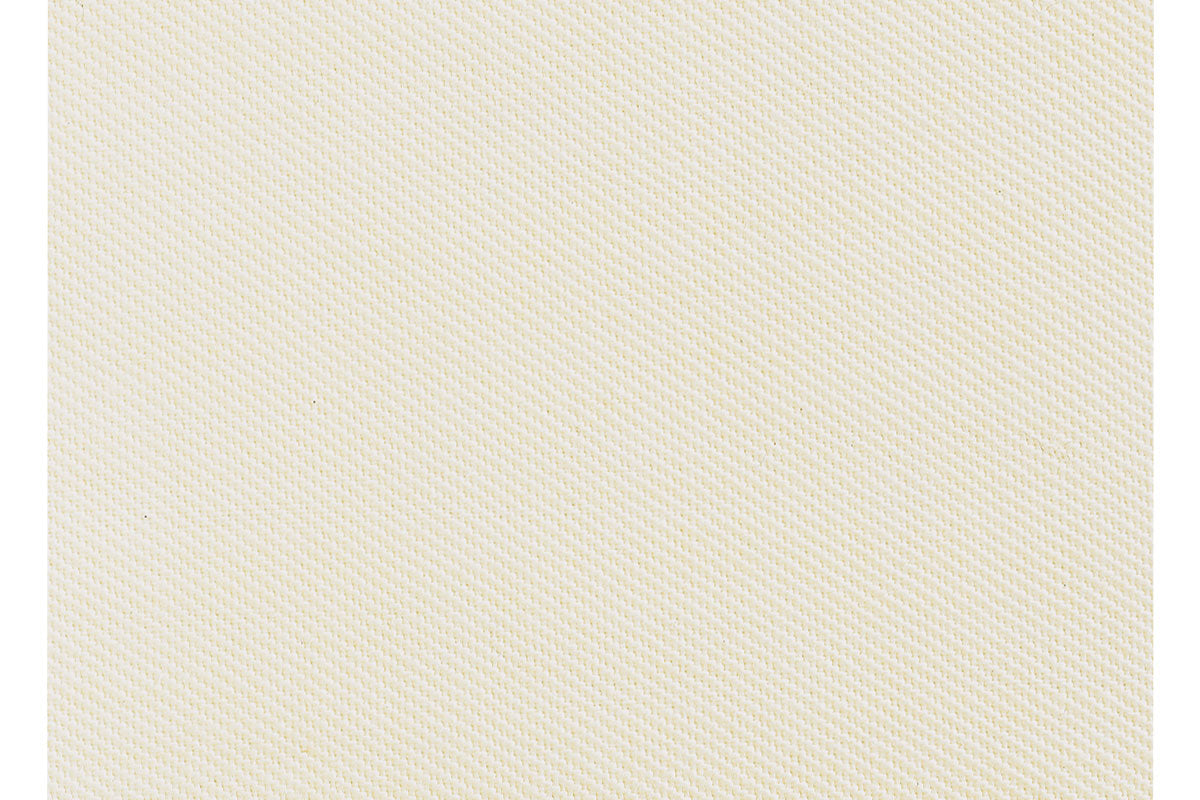
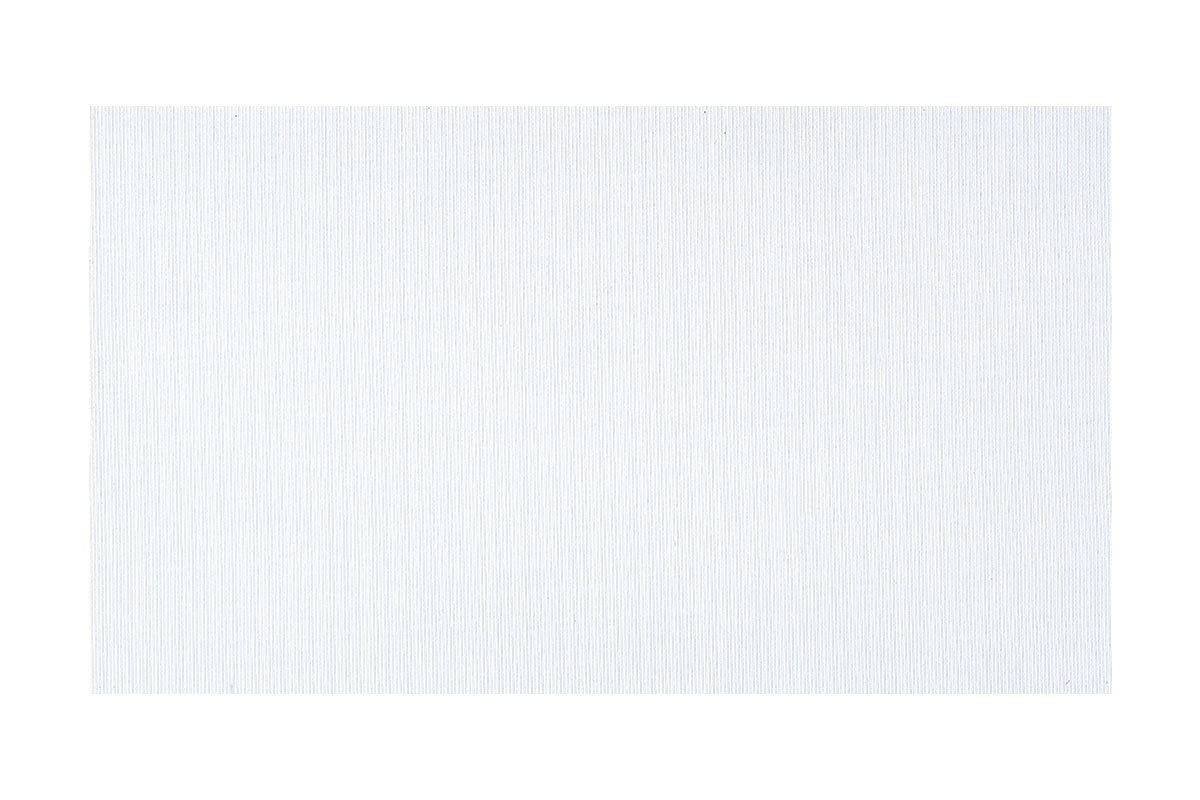
Jersey
Jersey is a 100% man-made fibre.
Length : 160cm/63". Weight : 240 g/m2.
The advantages of man-made fibre are :
- Natural fibers are softer and more natural than their synthetic fiber counterparts but aren’t always as durable.
- Man made or regenerated fibers are often easier to care for than natural fibers without the need for special treatments such as dry cleaning.
- Synthetic fibers can be easily washed in hot water which you wouldn’t recommend with some animal or plant based fabrics. They can also offer better performance in terms of heat, making them great for areas of high humidity and wet climates.
Man-made fibers, such as polyester, offer a interesting alternative to natural fibers. Through the process of polymerization, these fibers are created by combining raw materials to form a versatile polymer. The resulting fibers provide a reliable and sustainable option for various applications and are a great choice for those seeking functional and practical textile solutions.
This fabric is perfect for albs due to the easy maintenance.
Please read washing and cleaning instructions.
